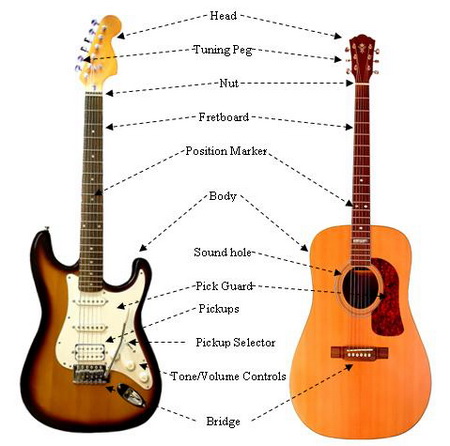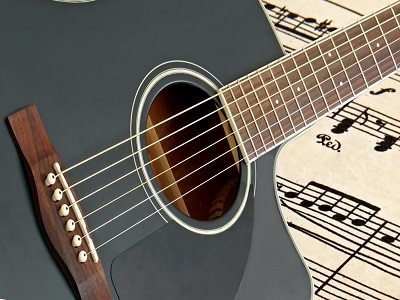Lyrics Writing Ideas & Tips For Beginners
 Songwriter Leonard Cohen was once quoted as saying that he can fill up an entire notebook full of lyric ideas in a day – and if he keeps even one line, then he considers it a good day!
Songwriter Leonard Cohen was once quoted as saying that he can fill up an entire notebook full of lyric ideas in a day – and if he keeps even one line, then he considers it a good day!
You don’t have to be as much of a perfectionist as Cohen, but you will benefit from doing the following things:
1. Write multiple versions of lyrics for your song
2. Be willing to take an ‘axe’, so to speak, to your lyrics and edit them mercilessly. I know this is easier said than done sometimes. As artists, we all tend to fall in love with our ‘babies’. We get our hearts and minds set on certain images or turns of phrases that impress us.
You don’t have to throw out a truly great lyric. However, I strongly encourage you to reserve judgment until you’ve written down as many song writing lyric ideas as possible for your song.
Now, let’s talk about specific tricks of the trade.
Writing lyrics is a lot like writing poetry, and many of the same ‘rules’ apply. You have options when it comes to the length of your verses and choruses, and you also have options for the type of rhyme scheme you employ.
General Rules of Thumb About Verse Length
1. Slower songs, like ballads, should employ shorter verses. You need to get the listener to the hook or chorus as soon as you can.
2. Faster songs can employ longer verses. Fair enough? Ok, let’s talk a little bit about rhyme schemes now.
General Rules of Thumb About Rhyme Scheme
1. You do not have to make every line of every verse/chorus a rhyme. In fact, none of your lyrics have to rhyme at all if you don’t want that.
2. Never allow your rhyme scheme to dictate your word choice!
Pay extra special attention to rule of thumb #2 because it will make a HUGE difference in your lyric writing.
Let me give you an example. Imagine for a moment that you’ve chosen an AABB rhyme scheme. You put down your first line:
I met a girl whose hair was flaming orange…
Wait a minute. What rhymes with “orange”? Nothing! It is one of the few words in the English language for which there is no perfect rhyme. So, you think, “maybe I can use a partial rhyme, but what’s close to orange? Storage? Porridge?”
See what I mean?
You could, of course, change that line to: “I met a girl whose hair was flaming red”, but then you must make the second line rhyme with “red”. What if you don’t want that particular vowel sound in that spot? What if you really prefer the image of orange hair?
You’ve got three choices:
1. Preserve the original rhyme scheme by dropping “orange”
2. Allow for a one-time alteration to the rhyme scheme, using an ABCC format instead
3. Try an ABCB rhyme scheme if you don’t like the “sing-song” feel of the ABCC format.
Let me give you some further examples. Say you opt for choice #2. You could re-write the verse as follows:
I met a girl whose hair was flaming orange (A)
she told me that her story can’t be told (B)
I know she’s afraid to ever love again (C)
But I’ll keep knocking til she lets me in. (C)
It’s ok, not great. What if you opt for choice #3?
I met a girl whose hair was flaming orange (A)
she told me that her story can’t be told (B)
But I’ll keep knocking til she lets me in (C)
Or until my heart is hard and cold (B)
Keep in mind; these are just lyrics I’ve made up to illustrate the point. Neither version is that good from a meaningful perspective.
However, the ABCB scheme of option #3 flows much better, in my opinion. Verses with longer line lengths such as these (probably for a mid-tempo ballad) are more satisfying to the ear when the closing rhyme is delayed.
I highly recommend brushing up on your knowledge of the common rhyme schemes used in poetry and song. You can find a full list, with links to examples, over at Wikipedia: https://en.wikipedia.org/wiki/Rhyme_scheme
Other Ways to Improve Your Lyrics
This can’t be said enough: It is very important to avoid using clichés in your lyrics writing!
The list of clichés in modern English is almost endless, but here is a quick peek at some of the most common ones found in lyrics:
Don’t break my heart
When it’s all said and done
Wipe the slate clean
I’ll always be true
Together forever
Into the night/day
Working like a dog
Walking on eggshells
Until the cows come home
Where there’s smoke there’s fire
The glass is half empty/half full
Talking to a brick wall
Cold as ice
At the crack of dawn
If you love something set it free
etc, etc..
Sometimes you can find clever uses for clichés if you put a new spin on them (e.g., Celine Dion’s “Unbreak My Heart”). However, it is generally best to avoid them entirely and find a different way to say what you want to say.
Instead of saying “it’s like talking to a brick wall,” for example, you could say: “I’m screaming into the ocean.” It conveys the same sense of futility but is also a more powerful, visual image that will force your audience to think rather than tune out.
Make Sense?
Another fun tool to add to your arsenal is assonance. What is assonance, you ask?
It is the use of repeated vowel sounds within phrases or sentences to create an internal rhyme.
A few examples on songwriting concepts:
With the sound, with the sound, with the sound of the ground – David Bowie
Dead in the middle of little Italy, little did we know that we riddled two middle men who didn’t do diddly – Big Pun
If that weren’t fun enough, you can also couple assonance with alliteration. An extreme (but very instructive) example can be found in the rap song “Alphabet Aerobics”, by Blackalicious. Here’s the first verse:
Artificial amateurs aren’t at all amazing
Analytically, I assault, animate things
Broken barriers bounded by the bomb beat
Buildings are broken, basically I’m bombarding
Casually create catastrophes, casualties
Cancelling cats got their canopies collapsing…
Or, how about the occasional, clever use of nonsense words? All of those “Hey na-na’s” and such can work when used in novel ways. Just listen to The Beatles’ “Ob-La-Di, Ob-La-Da”, or The Violent Femmes’ “Eep-Op-Ork-Oop Means I Love You.”
Everything You Need to Become a Great Guitar Player…
For the most comprehensive step-by-step guitar training program, we highly recommend Gibon’s Learn & Master Guitar course. This award winning DVD course is currently having a 3-day sale and you get to save $100 off the usual price today!
Click here to find out more information and get the course before this promotion ends…







Leave A Comment